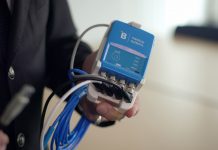
XPhyto Therapeutics outlines the latest developments concerning its generic transdermal patch to support sufferers of Parkinson’s disease and discusses the commercialisation of its innovative biosensor products.
XPhyto Therapeutics, a Canadian-headquartered bioscience accelerator, is close to finalising the development of a low-cost, generic transdermal patch for the delivery of the commonly prescribed drughttps://xphyto.com/products/, Rotigotine. Known as a dopamine agonist, Rotigotine improves motor coordination and reduces spasticity in patients with Parkinson’s disease and restless leg syndrome.
Earlier this year, the company conducted several studies that suggest its novel formulation will be nearly identical in its drug delivery profile to the original transdermal Rotigotine patch that was first commercialised in Europe in 2006 and the US in 2007.
XPhyto’s Rotigotine transdermal patch is being developed by its wholly-owned German subsidiary, Vektor Pharma TF GmbH. Based in Baden-Württemberg, Vektor is a world leader in the design, testing and manufacture of innovative, non-invasive drug delivery systems. These include oral dissolvable and transdermal patch products for pain relief and other conditions, involving the delivery of metered doses of medicine either immediately (oral) or over 24 hours (transdermal).
This is mindful of the fact that the US and EU represent lucrative markets for the soon-to-be off-patent Rotigotine drug patch. For instance, Pharma UCB’s Rotigotine transdermal patch, Neupro, generated over $378 million in sales last year in the US alone. According to Wissen Market Research, global sales for Rotigotine patches are expected to surpass $766m by 2030.
Fortunately for XPhyto, Neupro’s patent is soon to expire in Europe followed by the US, thereby setting up the opportunity for XPhyto to incorporate its key active medical ingredient into an equivalent, but novel, delivery system that offers doctors, pharmacists, and patients a competitive alternative to this important Parkinson’s disease medication.
Notably, following a successful human pilot study, XPhyto completed a human cadaver skin permeation study at Vektor’s EU GMP laboratory earlier this year, with an optimised formula, to compare its skin absorption to the name brand product, Neupro. Based on these results, XPhyto is pushing forward with follow-up cadaver skin studies for 2022 and is targeting the first half of next year for its pivotal comparative human bioavailability study.
Pending positive results and subsequent CE regulatory approval, XPhyto plans to enter the European market with its flagship generic product within 18-24 months, thereby offering a cost-competitive Rotigotine patch for patients with Parkinson’s disease.
The big picture
Mindful that XPhyto owns a platform delivery technology, it is worth considering that the research firm, Research and Markets, estimates that the global transdermal patch market had a value of nearly $6.5 billion in 2020.
In addition, oral thin film drug delivery products represent a large and growing international industry, which provides an alternative to conventional solid and liquid oral dosage forms. Transparency Market Research estimates that the global market for thin film drug manufacturing will be worth $15.98bn by 2024. Additionally, Kuick Research estimates the market will reach approximately $20bn by 2028.
XPhyto and its technology platforms are well positioned to capitalise on both the transdermal patch and oral thin film drug markets in a significant way as these sectors are large and expected to grow significantly over the next five to 10 years.
Readying XPhyto’s Rotigotine transdermal patch for market launch
Pending positive results from XPhyto’s pivotal study, the company intends to advance the product to an application for CE regulatory approval for commercialisation, starting in the EU next year.
According to XPhyto’s CEO, Hugh Rogers, this flagship product holds tremendous potential for the company as it represents the first of several generic thin film products the company is developing.
“Incorporating Rotigotine into Vektor’s novel transdermal drug delivery platform is a major accomplishment. With the formula locked and pivotal study and manufacturing planning soon to commence, we look forward to the next 12 months,” he says.

Biosensors: the future of disease detection
In other developments, XPhyto is readying for the commercialisation of a pipeline of biosensors. These innovative products function as a ‘quick test’ for heightened levels of certain targeted diseases, bacteria, and viruses to indicate whether further medical attention is advisable.
When XPhyto’s biosensor is exposed to specific bacterial and viral enzymes, it triggers biosensor activation and the release of an extremely bitter-tasting compound, alerting the user to the presence of the specific pathogen. In plain language, when these ‘smart strips’ are placed in the mouth, they can quickly indicate the presence of certain infectious diseases and the need for follow-up medical attention.
They are accurate enough to constitute real-time qualitative screening tools, which can help determine if a person is likely infected and needs to undergo more in-depth testing at a centralised medical triage facility. They are also expected to be extremely low-cost.
These biosensors are being developed for a number of diseases including: COVID, influenza A (including avian and swine flu), stomatitis, periimplantitis, periodontitis, and Group A strep throat.
XPhyto’s enzyme-based biosensors will now be adapted to become ultra-thin dissolvable wafers or film strips that quickly dissolve on or under the tongue, thanks to Vektor’s proprietary technology.
The managing director of XPhyto’s European operations summed up the significance of this pivotal development as follows:
“An accurate, low-cost, rapid decentralised screening test that provides immediate pathogen detection would be a powerful and disruptive tool in the fight against pandemics. Such a tool would allow for testing on a scale that is not currently possible.”
According to Rogers, XPhyto is now ready to take the development of its innovative biosensor technology to the next level.
He says: “With respect to our biosensor business, we are focused on EU product registrations and approvals, commercial manufacturing capacity, and European distribution.”
The market valuation of biosensors is expected to reach $42bn by 2027, according to the Delaware-based market intelligence firm Global Market Insights (GMI). This would effectively nearly double the biosensor marketplace in size within a few short years.
“Increasing numbers of product launches, coupled with rising adoption of novel biosensors will stimulate the global market expansion,” GMI states in a recent research report.
“Early and precise disease diagnosis is essential for the timely prognosis and the survival of the patient. In recent years, the demand for disposable, cost-efficient, and user-friendly devices with fast response time has extensively increased.”
In summary, XPhyto is well positioned in both the generic drug delivery sector and the biosensor market by way of leveraging its innovative and scalable drug delivery platforms.


























